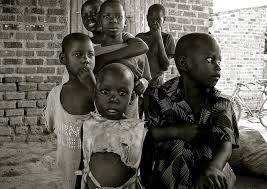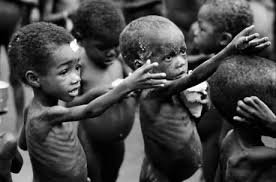In the same way as other nations in Africa, Libya qualifies as torment from the "asset revile, a wonder that happens when nations that have a lot of common assets additionally have a high destitution rate. The nation itself contains the biggest oil holds in Africa and the ninth biggest on the planet, yet as per the CIA World Factbook, around 33% of Libyans live underneath the destitution line.
At the point when Libya's oil saves were found in 1959, the vast majority of the benefits were immediately appropriated by the legislature of ruling ruler King Idris. The Libyan Revolution was propelled ten years after the fact by a rebellion drove by Muammar Gaddafi, who immediately picked up control and managed until two years prior when an uprising that agreed with populist developments all through the Middle East locale finished his 42-year dictatorial run the show. Today, various variables hinder killing neediness in the new Libya.
An intruded on economy. While Libya's economy has been to a great extent stable because of immense oil saves, it endured extraordinarily amid the half year common war. The year 2011 saw a 60% loss of GDP for the nation, in no little part because of the remote vitality organizations that pulled back laborers amid the fiercest clashes. For a nation where 95% of fares are produced by vitality enterprises, this misfortune was a genuine blow. While 2012 demonstrated oil generation's arrival to pre-upheaval levels, the loss of specialists still debilitates to moderate development. African Economic Outlook affirms that the real test for new Libyan authority is "maintainable administration" of the vitality assets the nation has.
Not well prepared human services frameworks. Before the finish of 2011, the recently framed Ministry of Health in Libya asked for help from the World Health Organization (WHO) for its wellbeing framework. With under 1500 essential tend to a populace of more than 6.5 million (as of February 2012), restorative and social insurance has turned into a genuine concern, particularly in the consequence of common war. Numerous outside wellbeing specialists left the nation amid this time also, extending the social insurance void for remote and provincial territories. For the individuals who stayed in the nation amid the common war, the requirement for emotional well-being and mental help was especially extraordinary. Libya's Deputy Minister of Health Adel Mohamed Abushoffa communicated this need to the WHO toward the beginning of February 2012: "We have a genuine lack of specialists. We as of now have only fourteen in the entire nation."

Absence of framework. Despite the fact that state extends in the 1980s guaranteed much for foundation, Libya's National Transitional Council (NTC) noticed that even before the 2011 unrest, disregard had left the nation with exceptionally poor framework. NTC head Ahmed Jehani told the BBC in late August 2011 that 10 years at any rate would be important to reconstruct streets and areas harmed by the war. While some pre-upheaval proposition for railroads and enhanced ports might be continued, vulnerability stays about whether work under these agreements will be proceeded.

While Libya's new government faces political difficulties of belief system, unification, and fanaticism, it additionally has more prominent open doors than at any other time to work together with help offices and remote financial specialists to address these significant issues and start to annihilate destitution in such an asset rich nation.